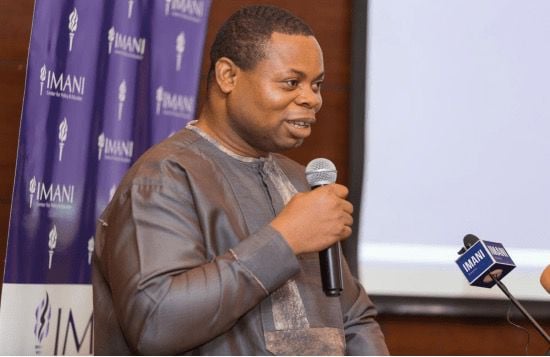Franklin Cudjoe, the Founding President of IMANI Africa, a prominent policy think tank in Ghana, has asserted that his organization foresaw the New Patriotic Party’s (NPP) electoral defeat long before it materialized in the December 2024 general elections. Cudjoe’s claim, made public via a Facebook post in January 2025, underscores IMANI’s consistent warnings to the NPP about the precarious political trajectory the party was pursuing. He characterized the NPP’s leadership as reckless and unresponsive to critical advice, likening their path to a “high road to suicide street.” This self-destructive course, according to Cudjoe, culminated in the party’s decisive loss at the polls, a political “funeral” as he termed it, performed on December 7th, 2024. This post-election analysis provides a framework for understanding IMANI’s perspective on the factors contributing to the NPP’s downfall.
The NPP’s defeat was indeed resounding, marked by a significant margin of over 1.6 million votes in the presidential race and a substantial reduction in their parliamentary representation. From a position of power, the NPP saw their seats in parliament dwindle to a mere 88 out of 276, ceding the majority to the National Democratic Congress (NDC) and a handful of independent candidates. This dramatic shift in the political landscape underscores the depth of the NPP’s electoral setback and the voters’ clear rejection of their governance over the preceding period. The magnitude of the loss serves as a stark validation of IMANI’s early predictions and highlights the consequences of disregarding critical policy analysis and public sentiment.
Cudjoe’s post-election commentary extends beyond simply claiming predictive prowess. It delves into the crucial role of critical feedback and rigorous public policy inquiry in a healthy democracy. He emphasizes that IMANI’s warnings, issued as early as January 2022, were not merely speculative pronouncements but were rooted in a careful analysis of the NPP’s governance, policies, and public engagement. The disregard for these warnings, Cudjoe argues, reveals a deeper issue of complacency and a dismissive attitude towards constructive criticism within the NPP. This inherent resistance to self-reflection and course correction, he suggests, ultimately contributed to the party’s downfall.
Furthermore, Cudjoe’s critique points to a potential disconnect between the NPP and the electorate. He implies that the party’s reliance on financial resources and political alliances, regardless of their legitimacy, fostered a sense of invulnerability and a disregard for public opinion. This perception of power, according to Cudjoe, blinded the NPP to the growing discontent among the electorate and prevented them from addressing the concerns that ultimately led to their defeat. His statement, “No matter how many millions of legitimate and illegitimate money and friends you have over another, remember that it is not a license to be complacent and abusive,” serves as a potent reminder that political legitimacy derives not from wealth or influence but from responsiveness to the needs and aspirations of the people.
The implications of Cudjoe’s analysis extend beyond the immediate aftermath of the 2024 elections. It serves as a cautionary tale for political parties across the spectrum, emphasizing the importance of engaging with critical voices and embracing robust policy analysis. The tendency to dismiss dissenting opinions or to surround oneself with yes-men, as Cudjoe suggests the NPP did, can create an echo chamber that distorts reality and leads to poor decision-making. The consequences of such insularity, as demonstrated by the NPP’s experience, can be severe, resulting in a loss of public trust and ultimately, political power.
In conclusion, Franklin Cudjoe’s post-election analysis frames the NPP’s defeat not as a sudden or unexpected event but as the culmination of a prolonged period of disregard for critical feedback and a disconnect from the electorate. His emphasis on the importance of self-reflection, responsiveness to public concerns, and the embrace of rigorous policy analysis serves as a valuable lesson for all political actors. The NPP’s experience, as interpreted by Cudjoe, underscores the precarious nature of political power and the essential role of accountability and responsiveness in maintaining the public trust necessary for sustained governance.














